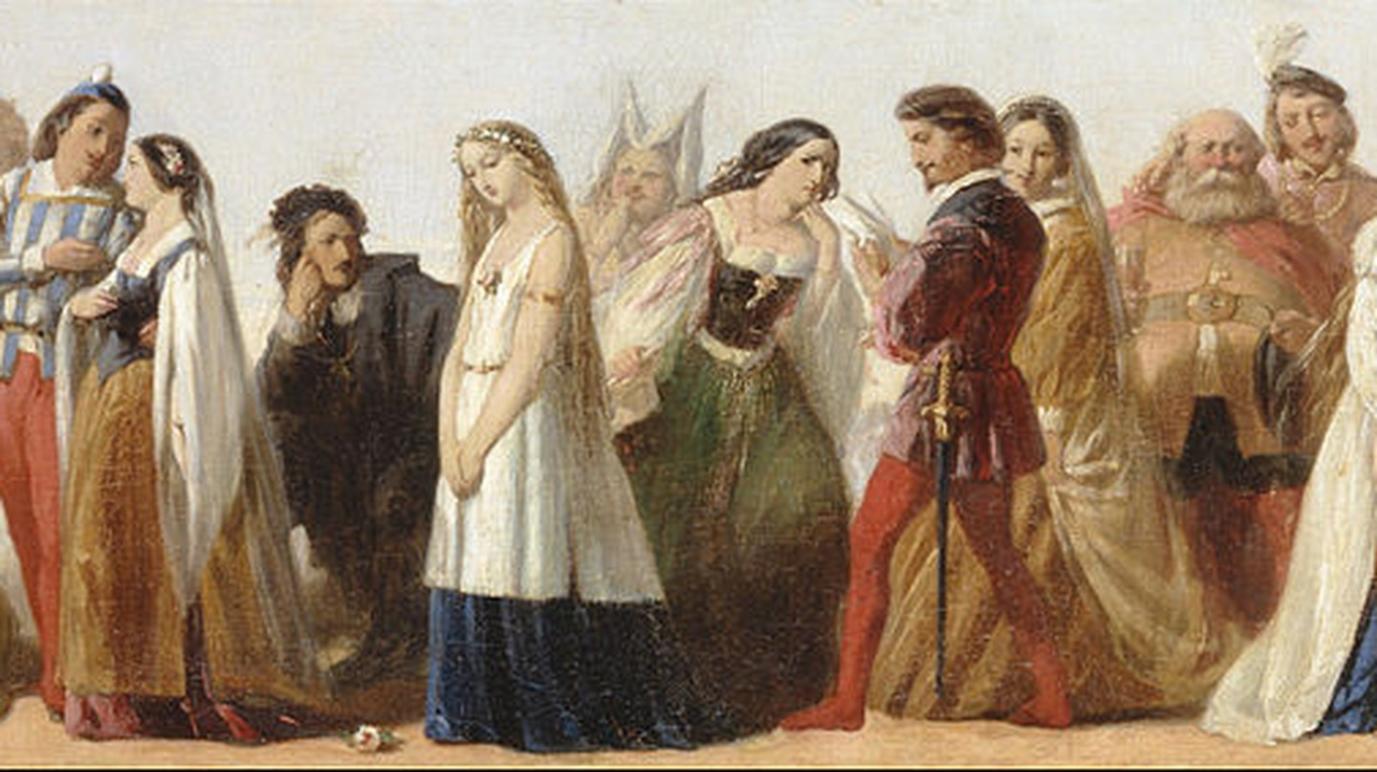How Can Shakespeare's Plays Be Used to Teach Students About History, Literature, and Culture?
Introduction

"All the world's a stage, and all the men and women merely players." - William Shakespeare, As You Like It
This famous line from Shakespeare's play perfectly captures the essence of his enduring legacy. Shakespeare's plays are not just works of fiction; they are mirrors reflecting the human condition, exploring the complexities of life, and providing insights into history, literature, and culture.
Thesis Statement:
Shakespeare's plays offer a unique and powerful medium for teaching students about history, literature, and culture. By delving into the worlds created by Shakespeare, students can gain a deeper understanding of the past, appreciate the beauty of language, and develop a broader cultural awareness.
I. Historical Context

Setting the Stage:
Shakespeare's plays were written during a time of great change and upheaval in English history. The Renaissance, with its emphasis on humanism and the rediscovery of classical learning, was in full swing. At the same time, England was undergoing significant political and religious transformations, including the Protestant Reformation and the rise of the Tudor dynasty.

Exploration of Historical Events:
- Shakespeare's plays often draw upon specific historical events or periods, offering students a glimpse into the social, political, and cultural landscape of the time.
- For example, Henry V dramatizes the Battle of Agincourt, a pivotal moment in English history.
- Julius Caesar explores the political intrigue and power struggles that led to the fall of the Roman Republic.
II. Literary Analysis
Language and Style:
- Shakespeare's plays are renowned for their linguistic richness and complexity.
- He masterfully employs a wide range of vocabulary, imagery, and rhetorical devices to create vivid and memorable scenes.
- Students can analyze Shakespeare's use of language to appreciate his literary genius and develop their own writing skills.
Character Development:
- Shakespeare's characters are some of the most complex and well-developed in all of literature.
- They are often driven by conflicting desires and emotions, making them relatable and engaging to students.
- By exploring the motivations, conflicts, and relationships of Shakespeare's characters, students can gain a deeper understanding of human nature.
Themes and Symbolism:
- Shakespeare's plays explore universal themes such as love, loss, power, and betrayal.
- He also uses symbolism to convey deeper meanings and create a sense of atmosphere.
- Students can identify and discuss these themes and symbols to develop their critical thinking skills and gain a richer understanding of Shakespeare's plays.
III. Cultural Reflections
Social Issues:
- Shakespeare's plays reflect the social issues and values of his time, providing students with insights into the lives and experiences of people from different eras.
- For example, his plays address issues such as gender roles, class structure, and political power dynamics.
- By examining these social issues, students can develop a greater understanding of the historical context in which Shakespeare's plays were written.
Cultural Traditions:
- Shakespeare's plays draw upon and contribute to cultural traditions, including folklore, mythology, and religious beliefs.
- By exploring these cultural traditions, students can gain a deeper appreciation for the diversity of human cultures and the ways in which they have shaped literature and art.
Artistic Expression:
- Shakespeare's plays are not just literary works; they are also works of art.
- They incorporate elements such as music, dance, and visual imagery to create a multisensory experience for the audience.
- By studying the artistic aspects of Shakespeare's plays, students can develop their appreciation for the performing arts and gain a deeper understanding of the creative process.
IV. Educational Value
Historical Understanding:
- Studying Shakespeare's plays can help students develop a deeper understanding of historical periods and events.
- By exploring the historical context of Shakespeare's plays, students can gain insights into the lives and experiences of people from different eras.
Literary Appreciation:
- Exposing students to Shakespeare's literary genius can foster their appreciation for language, storytelling, and the art of theater.
- By analyzing Shakespeare's plays, students can develop their critical thinking skills and gain a deeper understanding of literary techniques.
Cultural Awareness:
- Shakespeare's plays promote cultural awareness and understanding among students from diverse backgrounds.
- By exploring the cultural traditions and social issues reflected in Shakespeare's plays, students can gain a greater appreciation for the diversity of human cultures.
V. Conclusion
Summary of Main Points:
- Shakespeare's plays offer a unique and powerful medium for teaching students about history, literature, and culture.
- By delving into the worlds created by Shakespeare, students can gain a deeper understanding of the past, appreciate the beauty of language, and develop a broader cultural awareness.
Call to Action:
Educators and parents should incorporate Shakespeare's plays into their teaching and learning practices. The transformative impact that Shakespeare's plays can have on students' intellectual and cultural development is undeniable.
YesNo

Leave a Reply